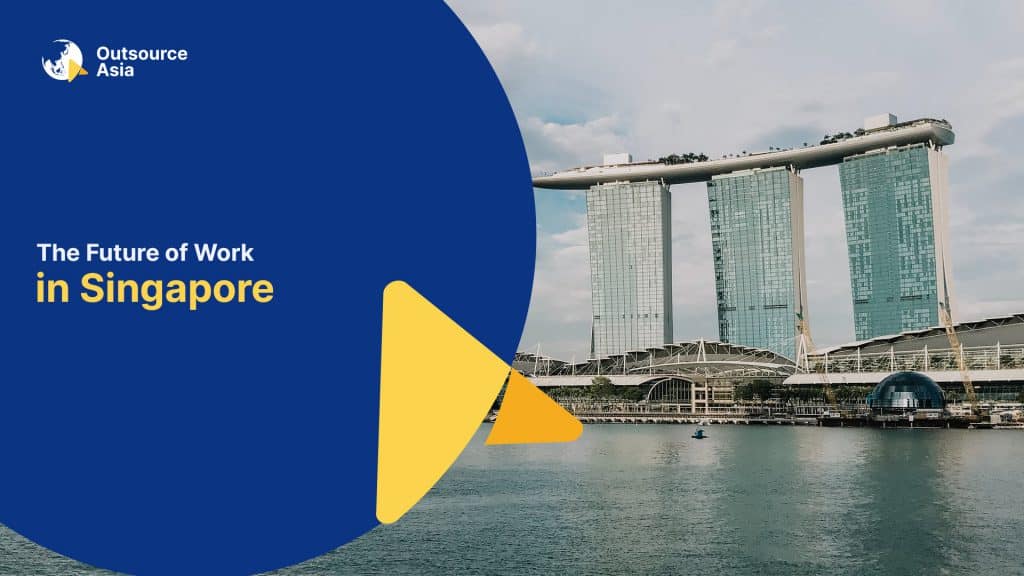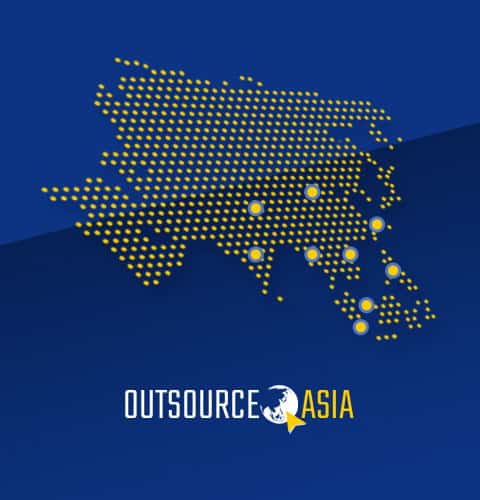
The Future of Work in Singapore
This article on the future of work in Singapore examines aspects of the post-pandemic era, ranging from the overall status of the local labor market up to the long-term influence on consumer consumption and business recovery. See how organizations respond towards the impact of automation and technology on job availability and employment growth in the new normal. There is also assessment on commitment to gender equality, diversity, and inclusion as well as decisions by policymakers and business leaders on aspects of cybersecurity management and data and privacy protection.
A huge wave hit the entire world and changed the way we work forever as COVID-19 swept across the globe. It impacted companies, employees, and job seekers with unprecedented challenges. Face-to-face interactions became a thing of the past. Companies quickly adapted to new technologies to shift their businesses entirely online. It wasn’t an easy time for sure. But it also opened enormous opportunities for those who knew how to ride the wave.
The pandemic accelerated automation, digitalization, reskilling, and upskilling. We can look to Singapore, one of the wealthiest places in the world, as an example.
Singapore is a high-income economy with a high standard of living. With a gross national income of US $54,920 per capita as of 2020, the city-state is a force to be reckoned with. The country boasts one of the world’s most business-friendly environments and is ranked among the most competitive economies.
After its independence in 1965, the former British colony became a global manufacturing and financial center. Singapore rapidly developed from a low-income country to a high-income powerhouse with an average GDP growth rate of 7.7%. Experts call Singapore the 20th Century’s most successful development story, and it’s tough to argue.
Singapore is a small country with little land and no natural resources. Against all odds, they could grow into the robust economy they are today.
Singapore has experienced great success throughout the years, thanks to the pragmatic leadership of the late Lee Kuan Yew and his successors, an effective public bureaucracy, effective control of corruption, learning from other countries, and reliance on the best and brightest citizens through free education and generous compensation.
The city-state of Singapore is no stranger to rising above any challenge and coming out on top. There are many things we can learn from them following the COVID-19 pandemic.
Reopening its Economy
After two months of lockdown in 2020, Singapore gradually reopened its economy, but some jobs never returned. Events and hospitality steeply declined, posing a threat to Singapore, a massive contributor to the national economy. Moreover, international borders were forced to close – causing enormous disruption to the open border dependent Singapore. The level of unemployment rose as the business landscape was forced to transform.
Pre-pandemic changes such as automation and virtual work were already on the rise in Singapore. COVID-19 further accelerated these trends and forced even more change in the workforce. Digitization of the workplace, which was predicted to take years to implement, was rolled out in a matter of months. Experts predicted a future with fewer full-time jobs as companies shift to employing people on short-term contracts for specific tasks. Virtual rather than physical work would also become the norm.
Status of Local Labor Market
According to the Ministry of Manpower (MOM), the overall unemployment rate in Singapore has continued to decline since Q3 2021 due to increasingly strong resident employment.
“This indicates that our labor market is recovering steadily, with the economy rebounding from the recession in 2020 and GDP (gross domestic product) growing by 7.2% last year,” said Manpower Minister Tan See Leng.
The recovery in the labor market is higher in industries such as information & communications, professional services, financial services, administrative & support services, and health & social services. However, the employment rate in consumer and tourism-related industries is trailing behind. These include food & beverage services, arts, entertainment & recreation, accommodation, and retail trade.
“The increase in group sizes for dining out and the opening of more vaccinated travel lanes have allowed sectors hardest-hit by Covid-19 such as food and beverage services and air transport to begin ramping up capacity again. We expect hiring demand in domestic sectors to pick up with gradual relaxation of community measures,” said Dr. Tan.
According to MOM’s latest labor market report, there were fewer employees who were placed on short work week or temporary layoff as well, but the number remains above pre-pandemic levels.
The road to recovery, according to Dr. Tan, “is still an uneven one”. “With the spread of the Omicron variant throughout the world, it is likely that Singapore will see a new wave of cases in the coming weeks. Businesses and workers need to be adaptable and flexible as the Covid-19 situation changes,” he added.
Reskilling for the Future
Singapore was not spared from the effects of the global pandemic. However, remaining true to its values of decisive leadership and the high value placed on education and training for all its citizens, they could stay afloat. Their investment in education and competitive compensation is unmatched by any other country in the world. Following the COVID-19 Pandemic, this made a world of difference.
“If you look at the history of Singapore, we have been looking at workforce reskilling since the day the nation was created,” said Gog Soon Joo, the Chief Skills Officer at SkillsFuture Singapore.
Every Singaporean citizen enjoys free education from primary and secondary to tertiary. Even after finishing traditional school, Singaporeans over 25 can claim a $500 credit towards training programs. There are also countless subsidized courses for citizens seeking to pursue continuing education. These show that economic growth can be tied to everyone’s career success.
According to a recent report by recruitment experts Hays, Singapore’s commitment to reskilling has been driven by a shortage in digital skills even before the pandemic struck. “The overwhelming majority of respondents in Singapore regard upskilling as important to their professional development, with reskilling topping their list of upskilling priorities after digital skills,” Hays said.
The report explained that hiring practices within organizations are leaning towards temporary workers, independent contractors, and freelancers with specific skillsets compatible with current tasks or as a response to more recent emergences like the gig economy.
“A workplace of the future will and should be hiring based on clusters of skills rather than a traditional on-paper perfect fit, as well as encouraging reskilling as a whole,” Hays Singapore regional director Grant Torrens said. “They could begin doing this by encouraging internal rotations, helping fund skills development programs for employees or simply staying open-minded to hiring individuals who have undergone career conversions or been part of the gig economy.”
Riding the Wave of New Technology
The new work landscape in Singapore rides along with the global technology changes that have swept the world. It embraces the migration to the cloud and maximizing a remote workforce. Singapore invests in skilling, reskilling, and upskilling its citizens to keep up with this rapidly growing trend.
To succeed, all private and public institutions need to align with students’ needs. “Education needs to be ‘low-cost’ and ‘on-demand,” said Dan Rosensweig, President and CEO of Chegg Inc. “All the economies around the world are becoming tech-enabled. But that doesn’t mean everybody has to be an engineer. It just means everybody has to understand and utilize technology in whatever role that they happen to be playing.”
Priority Skills for the Future of Work
According to a report by SkillsFuture Singapore (SSG), the digital economy, green economy, and care economy are high-growth areas with increasing opportunities in long-term career progression for Singapore workers.
Education Minister Chan Chun Sing said, “The Skills Demand for the Future Economy report is not an exercise in predicting the future, but an exercise in being forward-looking. The larger objective is to raise awareness, provoke discussion and most importantly spur all of us to take action to arm ourselves with these ‘tools’ for the future.”
Chan further explained that there is a high demand for digital economy jobs across all 23 sectors with Industry Transformation Maps (ITM), including data analysts, digital marketing analysts, and customer insights specialists.
“As Singapore looks beyond the pandemic, one certainty is that the pace of change will only increase. The nature of jobs will also evolve more quickly, and it is therefore not a matter of if, but when, the skills that we possess today will no longer be relevant,” Chan added.
New Stance Against Cyber Threats
The Singapore Cybersecurity Strategy 2021 (Strategy 2021) outlines the city-state’s updated goals and priorities to defend its cyberspace actively, simplify cybersecurity for end-users, and promote the development of international cyber norms and standards. This is a more proactive stance against cyber threats while ensuring that industries can adapt to the changes in the cyber operating environment.
According to Singapore’s Senior Minister and Coordinating Minister for National Security, Teo Chee Hean, “As Singapore harnesses digital technology to improve lives and livelihoods for all, cyber security has become a necessity and key enabler for Singapore’s digital economy and Singaporeans’ digital way of life.”
“The government seeks to address new and emerging cyber threats in the wake of strategic and technological shifts. These shifts include the opportunities and cyber risks brought about by emerging technologies, such as edge computing and quantum computing, that are potentially disruptive; growing cyber-physical risks as cyber disruptions can spill over to the physical domain; ubiquitous digital connectivity that expanded the attack surface; and increasing geopolitical tensions in cyberspace,” Teo added.
Singapore Leads the Change
The skyrocketed success of Singapore is thanks to many factors, including its strategic location, friendly policies towards foreign investors, and efficient and honest government.
But its success in pivoting to the future after the global pandemic can be attributed to its investment in education, reskilling, and upskilling every Singaporean worker.
With the world settling into a new normal, employees need to upskill themselves to keep up. Singapore leads this change, as 62% of workers are willing to re-train if necessary.
This is far ahead of their counterparts in neighboring countries like the Philippines, Thailand, Malaysia, and Indonesia, where workers were primarily unwilling to go through re-training. This could be tied to the fact that Singapore workers perceive the risk of losing their jobs to automation.
Moving Forward
To rise from the COVID-19 pandemic, we need to look straight ahead without turning back. For Singapore, the future of work means to reskill for the future economy and allow people to pivot into new industries. Rebuilding the economy requires the cooperation of all stakeholders, from individuals to corporations and the government.
Overall, we need to improve the new work environment to empower the workforce and see the economy recover truly. The new system needs to work for everybody.
The future of work is changing rapidly before our very eyes. It may seem daunting at first but by emulating the right practices and insights from countries such as Singapore, we can move into a more successful future.
Learn more about how Outsource Asia can help your organization embrace the future of work.

